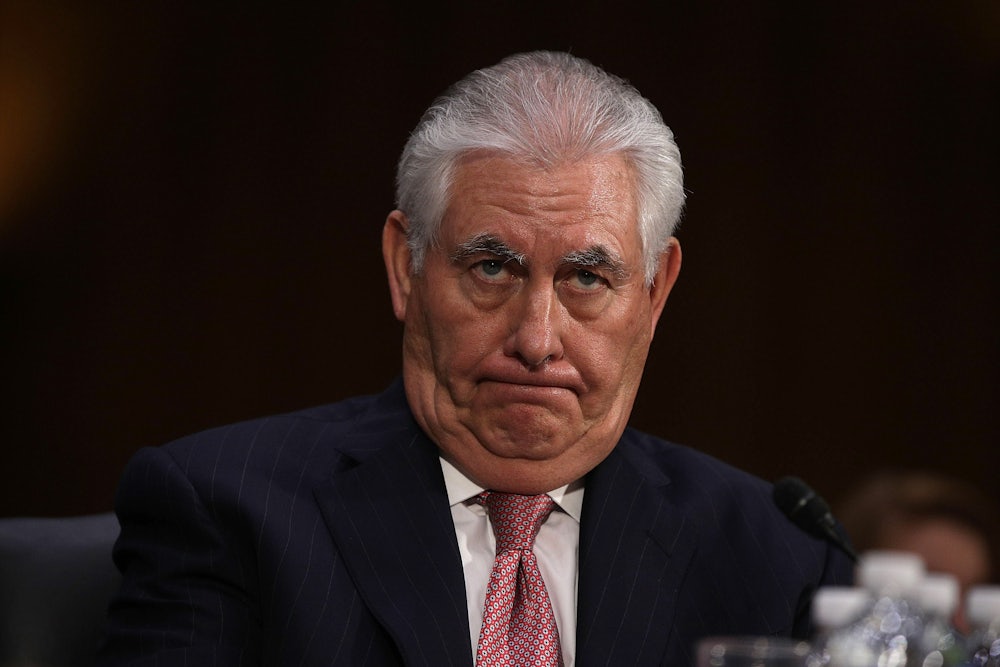On Thursday, the Russian leader dismissed new U.S. sanctions against his country passed the previous day by the Senate, suggesting that they were motivated by “domestic political problems in the U.S.,” rather than Russia’s interference in the 2016 election. However, the overwhelming show of bipartisan support for the amendment—it passed on a vote of 97-2—suggests that Putin may be protesting too much. (The full bill, which also contains new sanctions on Iran, passed the Senate, 98-2, on Thursday.)
Another person unhappy with the bill? Secretary of State Tillerson, who objected to a provision that will permit Congress to review, or even block, any unilateral changes Donald Trump might make to the sanctions. In a hearing before the House on Wednesday, Tillerson urged Congress to “ensure any legislation allows the president to have the flexibility to adjust sanctions to meet the needs of what is always an evolving diplomatic situation.”
Robbing Trump of this flexibility is, of course, the point. Tillerson attempted to reassure lawmakers that he agrees that “Russia must be held accountable,” but given how Trump cozied up to Putin on the campaign trail, and how quickly his administration has floated the removal of sanctions, it is refreshing that Congress is exerting its constitutional authority to serve as a check on the executive branch, one that has a troublesome track record when it comes to Russia.
The Senate’s nearly unanimous support for the measure should send Putin a clear message: The American electoral system cannot be treated as a mere marionette in Russia’s global cyberwarfare puppet show. What remains to be seen is whether the Trump administration agrees.
